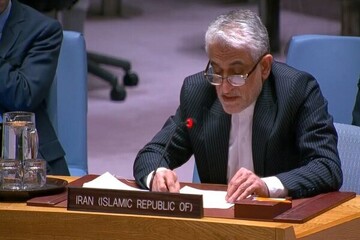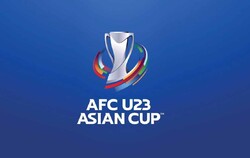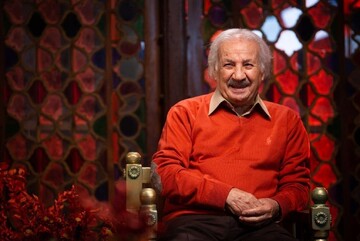-
 2026-01-06 22:09
2026-01-06 22:09
By Soheila Zarfam
What would an 'unconfined' Iranian response look like?
Defence Council’s statement suggests Iran wants to make any new US-Israeli aggression their last
TEHRAN – For several years, Iranian political and military leaders have been known for practicing "strategic patience"—a policy of avoiding impulsive responses and refusing to be the party that escalates tensions. This has largely remained Tehran’s approach over the last two years too, even as Israel has set the region ablaze, crossing new red lines daily in an attempt to drag Iran and its allies into a full-scale war with the United States.
-

By Mona Hojat Ansari
Baghaei tells Tehran Times ‘relations with Lebanon matter greatly’ ahead of FM’s visit
Spox says new Lebanese and Iranian ambassadors will begin missions soon
TEHRAN – Iran’s Foreign Ministry Spokesman Esmaeil Baghaei recently visited the Tehran Times, where he met with the newspaper’s Editor-in-Chief and CEO and gave a detailed interview to a correspondent.
-

By Sondoss Al Asaad
Lebanon’s governance in crisis
Lebanon’s political system is so hollowed out that even a fictitious foreign prince can dictate governance
BEIRUT—Imagine a country where a fictitious foreign prince, armed only with a phone and a fabricated authority, can dictate political appointments, unlock frozen bank accounts, and influence judicial decisions—all without leaving his home.
-

By staff writer
Israel’s expansionist agenda: Aggression in Syria amid Paris talks
TEHRAN – The persistence of Israeli military aggression in southern Syria, reported on Tuesday even as negotiations were underway in Paris, illustrates the contradiction between declared diplomatic efforts and the reality of the regime’s expansionist policies.
-

By Wesam Bahrani
Catastrophic year for Palestinians in 2025
TEHRAN – An official Palestinian report has documented the catastrophic suffering of Palestinians in 2025 at the hands of the Israeli occupation regime.
-

By Shahrokh Saei
From ally to aggressor: Greenland exposes Europe’s security illusion
TEHRAN - For years, European leaders have spoken of Russia as the singular threat to Europe’s security. Danish Prime Minister Mette Frederiksen captured this consensus in October 2025 when she stated: “There is only one country that is willing to threaten us (Europe), and it is Russia, and therefore we need a very strong answer back.” That statement reflected the prevailing mindset that NATO’s purpose was to contain Russia, and the United States was the indispensable ally in that mission.
Politics
-

Iran decries US 'rogue state' actions in Venezuela and against itself
TEHRAN – Addressing an emergency session of the United Nations Security Council on Monday, Iran’s Ambassador to the UN, Amir Saeed Iravani, condemned the United States for its military attack on Venezuela and the kidnapping of the nation's democratically elected President and First Lady.
-

Tehran rallies Latin American allies after US ‘law of jungle’ act in Venezuela
TEHRAN – Iranian Foreign Minister Abbas Araghchi held separate phone calls with his counterparts from Brazil and Cuba, with the recent U.S. military aggression in Venezuela dominating the discussions.
-

The West’s nuclear renaissance and the denial of others’ rights
The Trump administration’s renewed focus on reviving the U.S. nuclear industry has once again exposed the deep contradiction between the West’s official narrative of “clean and sustainable energy” and its political treatment of independent countries—a contradiction in which nuclear energy is deemed legitimate for some and criminal for others.
Sports
-

Tough task awaits Iran at 2026 Asian Handball Championship: Guijosa
TEHRAN – Iran handball head coach Rafael Guijosa said Team Melli face a difficult challenge at the 2026 Asian Men’s Handball Championship.
-

Shakirova named Iran’s women’s basketball head coach
TEHRAN - Elen Shakirova has been officially appointed as the new head coach of Iran’s women’s national basketball team, marking a significant step for the program as it continues its upward development.
-

Iran determined to start 2026 AFC U23 Asian Cup on winning note
TEHRAN - Iran are determined to kick off their campaign on a winning note when they face South Korea in their AFC U23 Asian Cup Saudi Arabia 2026 Group C opening tie on Wednesday.
Culture
-

First International Cartoon and Poster Contest “Terror Online” concludes in Tehran
TEHRAN – The closing ceremony of the first International Cartoon and Poster Contest “Terror Online” was held on the evening of January 5 at the Art Bureau in Tehran.
-

Veteran actor Saeed Pirdoost passes away at 85
TEHRAN — Renowned cinema and television actor Saeed Pirdoost passed away on Tuesday morning at his home in Tehran, on his 85th birthday, after a battle with cancer.
-

Braille toys to be unveiled in National Toy Festival
TEHRAN- Iran Association of Toys is set to unveil the country's first Braille toys in the framework of the 10th National Toys Festival, which is currently underway in Tehran.
Economy
-

Developing renewables, energy efficiency continues with private sector participation
TEHRAN- Iran’s Energy Minister Abbas Aliabadi, at the conference for the commencement of the executive operations of 1,269 megawatts of renewable power plants and electricity consumption optimization projects across the country, said: "The development of renewable energies and energy consumption optimization continues with the active participation of the private sector."
-

South Pars daily gas extraction reaches 725 mcm
TEHRAN- The oil minister, while appreciating the tireless efforts of operational personnel in the South Pars region, said a new record has been set in the South Pars gas field, and the amount of gas extracted from this field has reached about 725 million cubic meters (mcm) per day.
-

Iran moves towards single forex rate, aims to unify forex markets amid economic concerns
TEHRAN- At the 134th meeting of the Government-Private Sector Dialogue Council, while elaborating on some details regarding the implementation of the launch of the negotiated foreign currency exchange market and moving toward a single exchange rate, discussions were also held concerning the poor performance of active systems in the business environment. It was decided that, with the follow-up of the Ministry of Economy, the reorganization of these systems would be implemented with the aim of facilitating affairs.
Society
-

Connect Forum Specialized Meeting to be held
TEHRAN – The Organization for the Development of International Cooperation in Science and Technology will hold the ninth edition of the Connect Forum specialized meeting at the Iran House of Innovation and Technology (iHiT) in Tehran on Wednesday.
-

DOE develops five-year wildfire monitoring plan
TEHRAN – The Department of Environment (DOE) has developed a five-year monitoring plan to prevent the catastrophic wildfires, exacerbated by the drought, in four main types of areas, including national parks, wildlife refuges, protected areas, and national nature monuments.
-

‘Iran's wildlife reserves hosting at least 27 Asiatic cheetahs’
TEHRAN – Twenty-seven Asiatic cheetahs have been spotted so far in wildlife reserves across the country, an official with the Department of Environment (DOE) has stated.
Tourism
-

Sarakhieh, Iran’s little Venice
At first, it is hard to believe such a place exists in Iran. But deep inside the vast Shadegan wetland in Khuzestan province, there is a village where water is the main road and boats replace cars. This village is Sarakhieh, often called Iran’s “Little Venice.”
-

Isfahan holds ceremony marking UNESCO listing of mirror-work art
TEHRAN - A ceremony was held in Isfahan on Tuesday to mark the inscription of Ayeneh-Kari, the Iranian art of architectural mirror work, on UNESCO’s Representative List of the Intangible Cultural Heritage of Humanity.
-

Iran cultural office in Austria launches Europe-focused Iran studies prize
TEHRAN – Iran’s cultural office in Austria said it has launched the “Bert Fragner Award” to help promote Iran studies in Europe, with the inaugural award ceremony scheduled to be held in Vienna next month.
International
-

Lebanon’s governance in crisis
BEIRUT—Imagine a country where a fictitious foreign prince, armed only with a phone and a fabricated authority, can dictate political appointments, unlock frozen bank accounts, and influence judicial decisions—all without leaving his home.
-

Israel’s expansionist agenda: Aggression in Syria amid Paris talks
TEHRAN – The persistence of Israeli military aggression in southern Syria, reported on Tuesday even as negotiations were underway in Paris, illustrates the contradiction between declared diplomatic efforts and the reality of the regime’s expansionist policies.
-

Catastrophic year for Palestinians in 2025
TEHRAN – An official Palestinian report has documented the catastrophic suffering of Palestinians in 2025 at the hands of the Israeli occupation regime.
Most Viewed
-
Miscalculation by Iran's enemies could open gates of hell on them
-
What would an 'unconfined' Iranian response look like?
-
15240
-
Iran and AsiaEuro continent: Underestimated connection and underrecognized role
-
The anarchy of the Trump Doctrine
-
Administered states, contained fortresses, legal relics
-
Iran moves towards single forex rate, aims to unify forex markets amid economic concerns
-
Sarakhieh, Iran’s little Venice
-
Lebanon between war and ‘neutralization’
-
Tehran warns of global fallout over US abduction of Venezuelan president
-
Trump’s imperial reach: From Latin America to Greenland
-
From ally to aggressor: Greenland exposes Europe’s security illusion
-
Lebanon’s governance in crisis
-
Trump's Iran meddling from sanctions to tweets
-
Iraqi officials unite in honoring Gen. Soleimani, condemning US ‘state terrorism’












